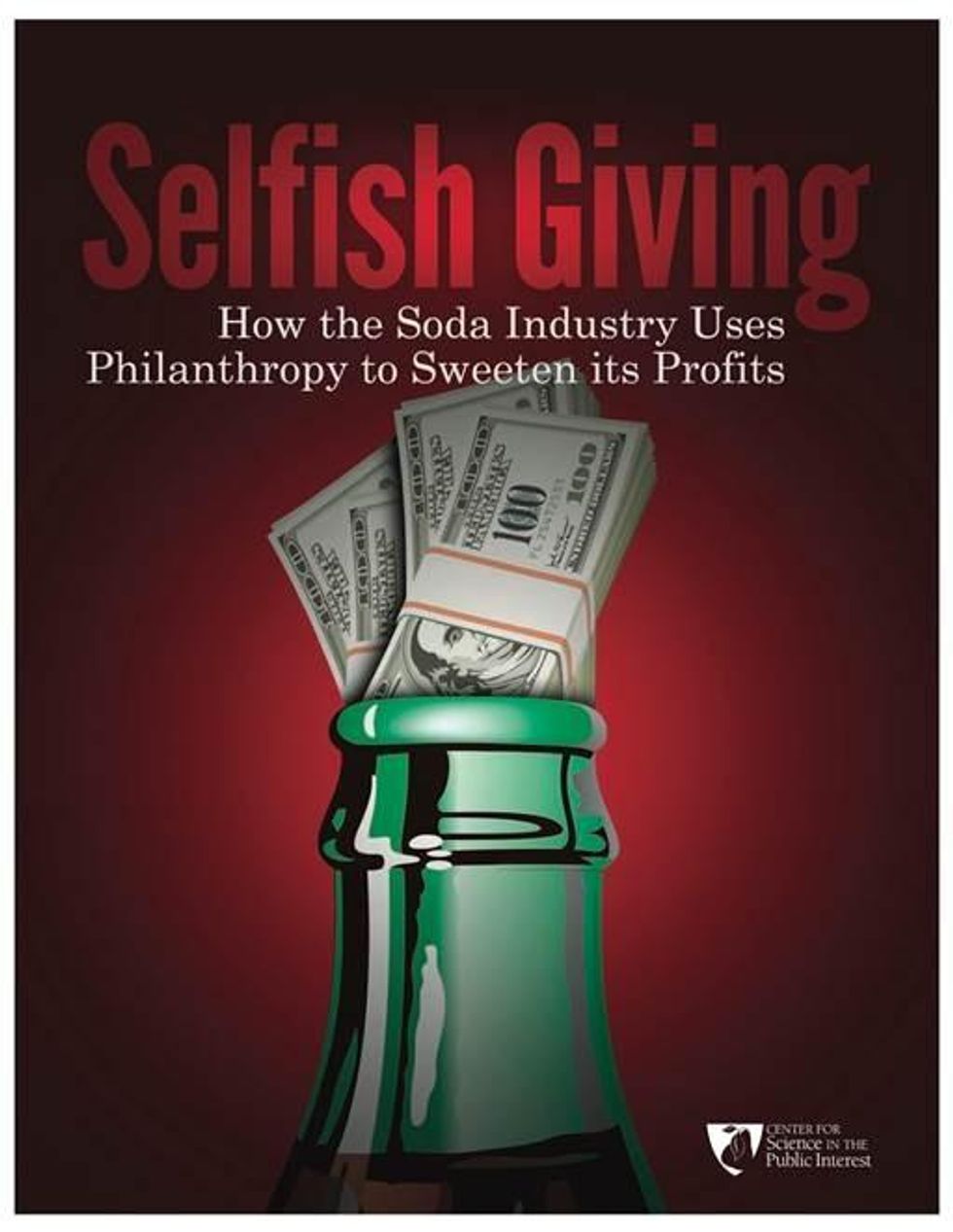In the summer of 2010, Robert DuBois and Aaron Zueck headed out on a 100 day bike trip across the country to document the thriving local foods movement. In the YouTube video of this "potluck across America," the two seem genuinely passionate about farmers and healthy food--and the movement they're documenting. As the screen goes black, a voiceover says: "Every time you drink Pepsi you support the Pepsi Refresh project. Every Pepsi refreshes the world."
What's one of the world's biggest soda companies got to do with a local foods bike trek? Turns out Aaron and Robert had gotten enough votes on Pepsi's website to earn $5,000 from the company's Pepsi Refresh campaign. In return, the two gave the multinational corporation the right to use their story to burnish their brand.
Launched in 2010, Pepsi Refresh was a brilliant new marketing strategy that drew millions to the company's Web site to "vote" on community-based projects to win grants between $5,000 and $50,000. It's one of the best examples of a new corporate PR strategy that hides marketing beneath the cover of philanthropy. In a fabulous new report "Selfish Giving: How the Soda Industry Uses Philanthropy to Sweeten Its Profits," researchers at the Center for Science in the Public Interest call it "philanthro-marketing."
I remember that summer of 2010 being bombarded with pleas from friends and colleagues to vote for worthy projects in the running for Pepsi Refresh, projects like Aaron and Robert's. At the time, I heard few people being publicly critical of Pepsi Refresh. In fact, one community activist from the Bronx even described Pepsi Refresh as "democracy in action."
But what was Pepsi Refresh really? It was a cleverly structured marketing campaign that drew people close to the brand while bringing heavy traffic to the company's Web site--you could vote once a day, but as many times as you wanted. Thousands of projects jockeyed for grants; only 32 were given every month. And while $50,000, even $5,000, is a significant contribution to a community project, it's a tiny fraction of the company's marketing budget. (Each month about $1 million was given away; consider that the CEO of Pepsi herself brought home $1.3 million a month).
As the CSPI report makes clear, this isn't charity. "PepsiCo's annual contributions to human sustainability programs, $2.3 million in 2011," the authors write, "were... dwarfed by the company's $60 million sponsorship of just one television show--The X Factor."
My Coke Rewards is Coca-Cola's equivalent. Through purchases of Coke products, consumers earn points to redeem for prizes. The program has developed an interface specifically for schools and Parent-Teacher Associations across the country bill My Coke Rewards as a great fundraising tool for schools.
Like this Chicago-area PTA that encouraged participation in My Coke Rewards: Our school has "joined the My Coke Rewards program," said the PTA's Web site. "That means by drinking Coca-Cola products your family can get My Coke Rewards points and donate them to help our school."
Nevermind the questionable practice of aligning with a company whose products are linked to the obesity crisis. Or, that as far as fundraising goes, it's not such a great bang for your buck. We did the math: To earn just one physical activity pack for your school, you'd need to buy 55,440 cans of Coke, which would cost $11,550. Seems like there's a more effective way to get your school 350 bucks worth of jump ropes, balls, cones, and basic gym supplies.
In tough economic times, communities are particularly vulnerable to getting co-opted by programs like My Coke Rewards or Pepsi Refresh where they become de facto marketers for the companies. But as the CSPI report makes clear: Public policy solutions could garner as much or more revenue without sacrificing our power, and handing over goodwill, to the companies whose products--like Coke and Pepsi--are at the center of our healthcare crisis.
Soda taxes, for instance, could be a powerful mechanism for raising much-needed public funds, especially for health promotion and physical activity programs for youth, CSPI notes. In fact, the report claims that one proposed soda tax in Philadelphia could have raised $77 million a year for the city, with $20 million specifically earmarked for obesity prevention programs.
But the food industry fought hard against Philadelphia's proposed tax, as they have everywhere such taxes have been proposed. And in 2011, after the city's Mayor proposed the two-cent-per-ounce excise tax on sugary drinks, Philadelphia's City Council rejected it. "Perhaps to celebrate the demise of the tax bill or to inoculate against a future tax proposal," said CSPI. "In 2011 the beverage industry funneled a $10 million donation to CHOP by creating a new non-profit organization, the Foundation for a Healthy America."
Back in 2010 at the height of the Pepsi Refresh campaign, the executive director of a girls club in New York City publicly drew her line in the sand, in a blog called "Pimping for Pepsi? I'd Rather Sell Cupcakes!" "It feels so schizophrenic," she wrote, "to promote products and ideas we spend our working days challenging." She's right: I urge you to read CSPI's whole report here and then let's get back to the work of challenging companies that are making our communities sick.
